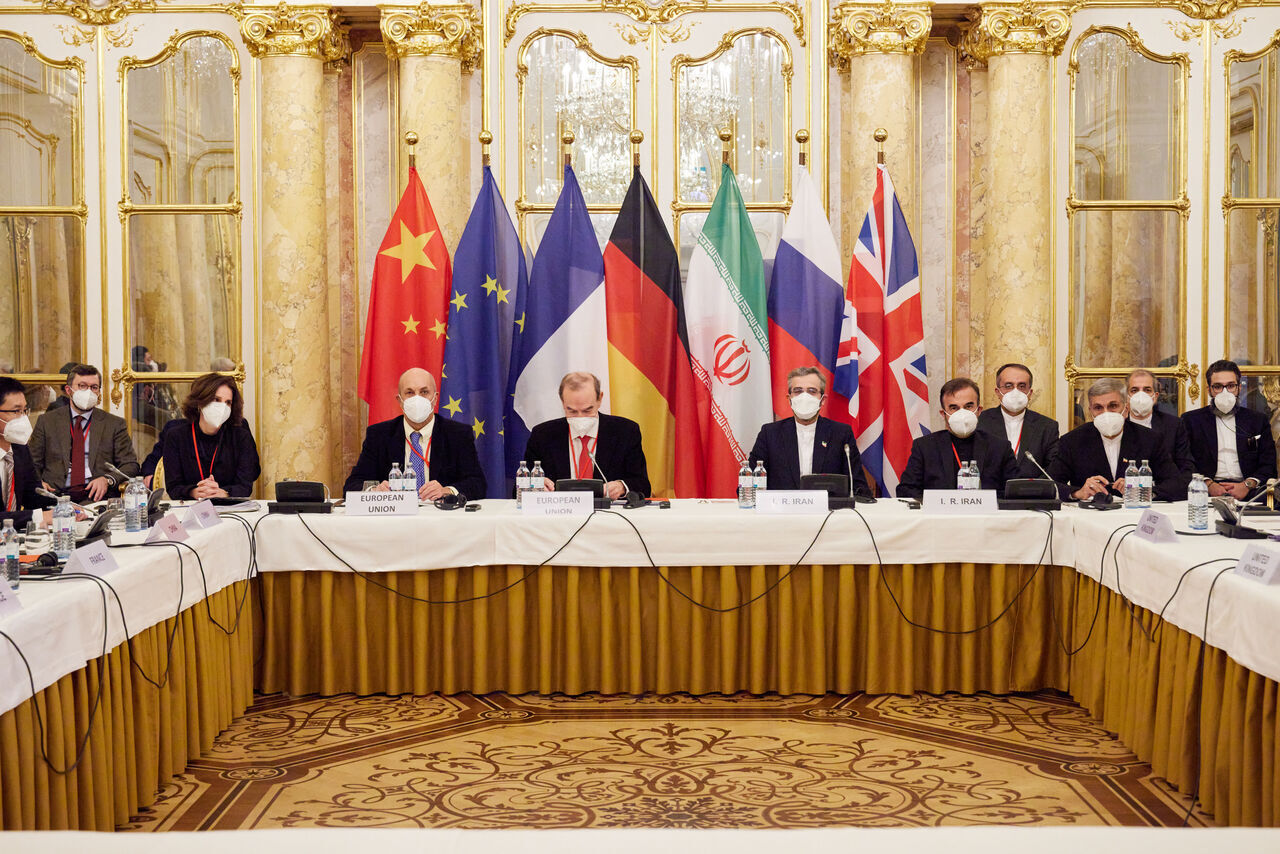ID :
640609
Sat, 09/10/2022 - 14:15
Auther :
Shortlink :
https://www.oananews.org//node/640609
The shortlink copeid
US confusion over talks to revive JCPOA

Tehran, IRNA – The American authorities delayed answering Iran’s response to the European Union’s proposal on reviving the 2015 nuclear deal, and delivered mixing messages and adopted paradoxical stances while and after weighing Iran's response. This shows that Washington is facing a crisis in making a political decision to finalize talks on lifting anti-Iran sanctions.
The talks in Vienna, Austria, for lifting anti-Iran sanctions were resumed on August 4, 2022; then, reports showed that this round of negotiations was positive, but a special breakthrough has not emerged so far.
The prolongation of the talks is because the United States has not cooperated to reach a consensus.
However, the European Union proposed its own conclusion and the Islamic Republic of Iran replied to it based on its own considerations, which was described as rational and realistic by the European troika (Britain, Germany, and France) as well as China and Russia.
The US as the culprit in disrupting the implementation of the nuclear deal, formally known as the Joint Comprehensive Plan of Action (JCPOA), has been hesitating to provide clear stance in respect of lifting anti-Iran sanctions.
**The nuclear deal
Iran and the P5+1 (the US, the UK, France, China, Russia plus Germany) reached an agreement in 2015 to lift anti-Iran sanctions in return for Iran’s cooperation in restricting its nuclear capabilities, but the Trump administration withdrew the deal in May 2018 and re-imposed sanctions on Iran.
Tehran continued to abide by its commitments under the JCPOA more than a year, despite the fact that the US imposed maximum pressure on the Islamic Republic and the Europeans did nothing tangible in complying with their promises.
Then, Tehran begins to gradually reduce its compliance with the deal, arguing that all remaining signatories to the nuclear accord should implement their tasks in this respect.
**Recent talks
Following one month of exchange of reactions between Iran and the US to the European proposals, Washington has not yet decided on Tehran’s demands.
Josep Borrell, High Representative of the European Union for Foreign Affairs and Security Policy, made it clear at an academic conference in Spain that Iran’s responses to the European draft were rational, and that it was expected that the next round of Vienna talks among the P4+1 (Britain, France, China, Russia plus Germany) would be held within a week, but it has been postponed due to the United States’ hesitation in responding.
This shows that the Europeans are aware of Washington’s hesitation and confusion in the last round of the talks; although the US presented its response, some factors prove that the Americans are engaged in a diplomatic standstill.
**Reasons behind US’s hesitation
The US and its European allies have threatened Iran that they would impose more sanctions in order to put pressure on the Islamic Republic to give up its influence in the region and reduce its defense power, but Tehran stands firm and refuses excessive demands.
Iran improved its nuclear capabilities and capacities in response to the Western parties’ breach of promises, showing that sanctions cannot stop Iranians from acquiring technical capabilities. The progress has created a huge challenge for the American authorities who witnessed that their leverage to put pressure on Iran was doomed to fail. Thus, the issue added to the Americans’ confusion in the nuclear talks.
Moreover, the Biden administration is facing opponents inside the United States, who oppose returning to the JCPOA, although a poll conducted by Gallop shows that 78 percent of the American people want their statesmen to resolve the nuclear dossier through of diplomacy. However, US President Joe Biden and his fellow Democrats are afraid of the impact of signing a deal with Iran over the upcoming congressional elections in the United States.
The Zionist regime has made all-out efforts to put pressure on the Biden administration to stop the nuclear talks. Some Israeli officials have held talks with American authorities to urge them to avoid reaching an agreement with Iran and lifting sanctions. The Tel Aviv regime has even resorted to the Zionist lobby AIPAC in the US to put pressure on the White House.
Islamic Parliament Research Center (IPRC) of the Islamic Republic of Iran has reported that the war in Ukraine has added to the United States’ confusion in making a decision to finalize the Vienna talks, because Washington is not able to impose its demands on Iran, as a result of the crisis between Russia and Ukraine.
In conclusion, the United States’ hesitation and confusion to take a political decision regarding the finalization of the Vienna talks for the revival of the JCPOA have their roots in the Islamic Republic of Iran’s negotiating from the position of power in technical and diplomatic aspects as well as the aforementioned domestic and international pressures on American decision-makers.
Follow us on Twitter @IrnaEnglish





